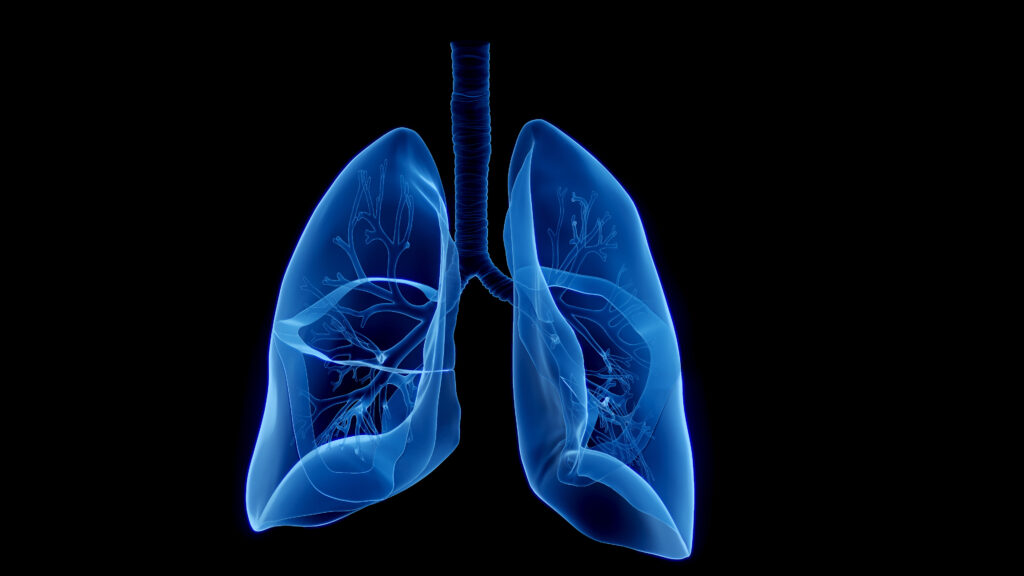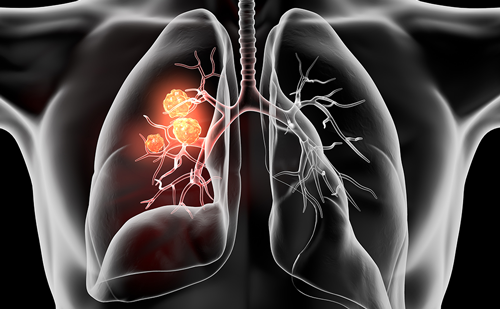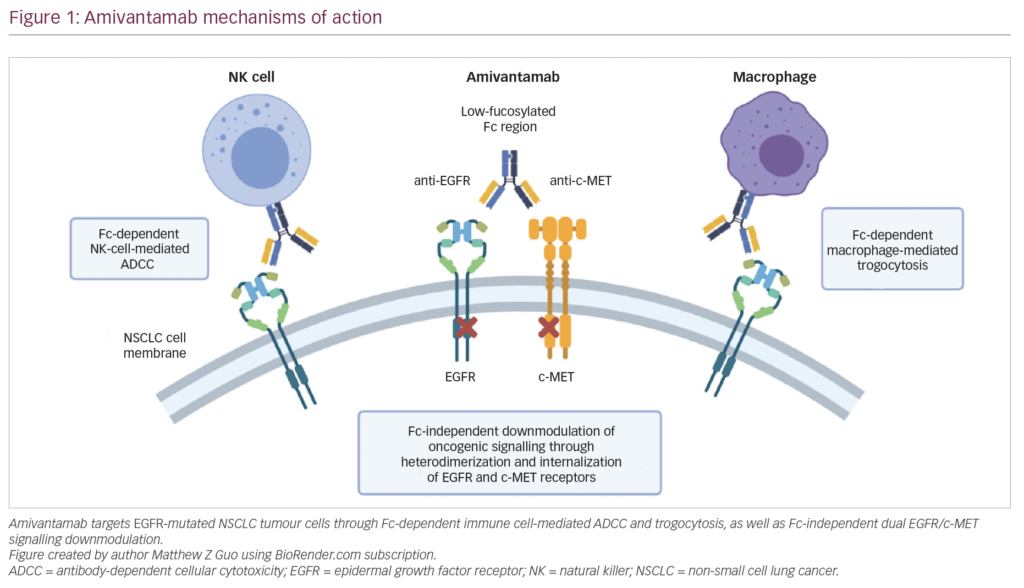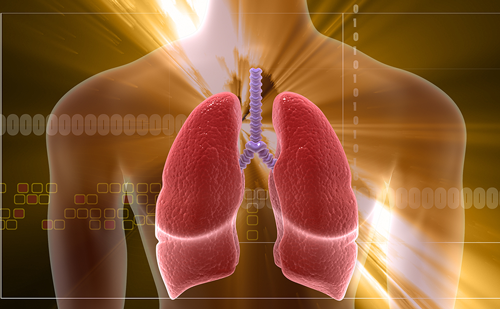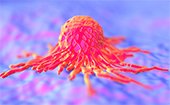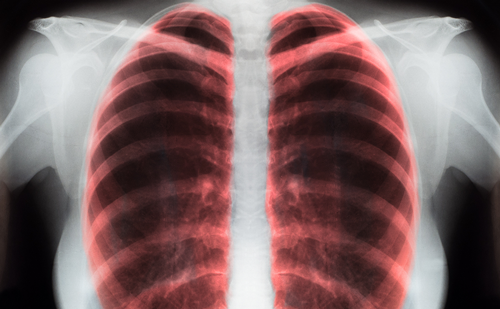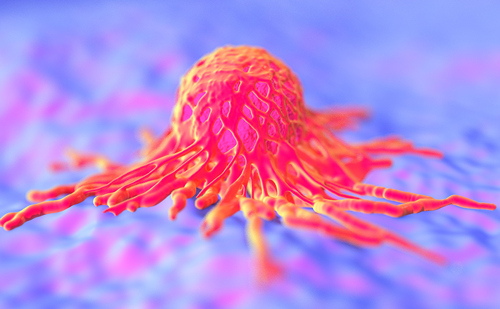Epidermal growth factor receptor tyrosine kinase inhibitors (EGFR-TKIs), such as gefitinib, erlotinib or afatinib, are standard of care as first-line treatment for advanced non-small cell lung cancer (NSCLC) harbouring EGFR-activating mutations.1
Adverse events associated with gefitinib are well known and include rash, pruritus, diarrhoea, nausea, anorexia, fatigue, derangement of liver function tests and, rarely, interstitial lung disease. Renal impairment was not recorded as an adverse event in randomised phase III trials evaluating gefitinib as first-line therapy in advanced EGFR-mutant NSCLC.2–4
Gefitinib metabolism is mainly hepatic and its excretion predominantly gastrointestinal. Renal elimination accounts for less than 4 % of an administered dose5 and it has safely been administered to patients with chronic renal impairment.6 While cases of acute kidney injury have been reported with other anti-EGFR treatments, such as cetuximab,7 it has not been reported with gefitinib in the Western population.
We report a case of a patient with EGFR-mutant advanced NSCLC who developed acute kidney injury during treatment with gefitinib, which slowly improved on discontinuation of the drug.
Case Report
An 82-year-old Caucasian male ex-smoker presented with a 4-month history of productive cough. Chest radiograph revealed a left hilar mass with multiple bilateral opacities in keeping with intrapulmonary metastases. Computed tomography (CT) of the chest and abdomen confirmed a 6 cm left upper lobe mass invading the mediastinum and pulmonary artery with bilateral lung metastases and associated left pleural thickening. Endobronchial biopsy of the left upper lobe bronchus revealed NSCLC positive for cytokeratin 7 (CK7), thyroid transcription factor 1 (TTF1) and cytokeratin 5/6 (CK5/6), consistent with NSCLC not otherwise specified (NOS). Mutation analysis, using Roche Cobas EGFR assay, demonstrated an EGFR-activating mutation in exon 21 (c.2573T>G (Leu858.Arg)).
His past medical history included diet-controlled type 2 diabetes with no microvascular complications and hypertension managed with perindopril 8 mg once daily (OD) and amlodipine 10 mg OD. His Eastern Cooperative Oncology Group (ECOG) performance status (PS) was 1 and baseline objective examination was unremarkable.
Baseline full blood count and biochemistry were within normal range except for a mildly deranged serum creatinine (sCr) of 125 μmol/l (normal range 50–120 μmol/l) with an estimated glomerular filtration rate (eGFR) of 40 ml/min using Cockroft and Gault formula, indicating a pre-existing element of chronic kidney disease (Kidney Disease Outcomes Quality Initiative Chronic Kidney Disease Stage 3).
He was started on first-line gefitinib (250 mg/day) on 4 July 2012. On day 28, he was well and reported an improvement in his cough. The only adverse event experienced was common toxicity criteria (CTC) Grade 1 erythematous rash on his face. Blood test was acceptable and his kidney function remained stable (sCr 149 μmol/l, eGFR 34 ml/min). Restaging CT scan at day +42 revealed a partial response to treatment. Gefitinib was continued at full dose, the patient was reviewed monthly with evidence of clinical and radiological benefit and did not experience any further adverse events.
When reviewed on day 84, he reported CTC grade 1 diarrhoea, grade 2 nausea and grade 1 vomiting from day 70 to 73. His symptoms resolved spontaneously and treatment was not interrupted during this time. On examination, his PS was 1, he was euvolaemic with a resting blood pressure of 134/64 and clinically not dehydrated. Blood tests showed acute kidney injury (sCr 496 μmol/l [normal range 50–120 μmol/l], urea 20 mmol/l [normal range 2.7–7.5 mmol/l] and potassium 5.4 mmol/l [3.5–5.0 mmol/l]). He was urgently admitted for further assessment.
Urine dipstick revealed no proteinuria, haematuria, leucocytes or nitrates, with a pH of 6.0. Urine microscopy, culture and sensitivity confirmed no organisms and no growth following 48 hours of incubation. Erythrocyte sedimentation rate was not elevated at 20 mm/hour; albumin was 37 g/l (35–50 g/l). Immunoglobulin A (IgA) was elevated at 5.6 g/l (1.2–4.0 g/l) with protein electrophoresis confirming a polyclonal rise in IgA but no monoclonal paraprotein was visible on immunofixation. There was no laboratory evidence of hepatotoxicity or myelosupression. Ultrasound of the renal tract was unremarkable. Gefitinib and antihypertensives were immediately discontinued. He was started on intravenous fluids and he achieved a good diuresis. Renal function gradually improved and he was discharged home 6 days later with a sCr of 395 μmol/l. Amlodipine was cautiously re-introduced.
Since discharge his sCr continued to improve but never returned to baseline 6 months following the acute admission. The trend of kidney function tests is shown in Table 1.
On further follow up in the clinic patient remained well in himself (PS 1) with no evidence of progression and was kept under regular review in order to consider further treatment at progression.
In October 2013, due to clinical and radiological deterioration, he was started on single agent treatment with gemcitabine 1,250 mg/m2 given on day 1 and 8 every 3 weeks. He received four cycles with good tolerance but unfortunately a restaging CT scan (January 2014) showed progressive disease.
Following this, the patient received palliative radiotherapy in the left lung mass on April 2014 (20 Gy/5 fractions) and was referred to the palliative team for best supportive care. Unfortunately the patient died in December 2014, about 30 months since diagnosis.
Discussion
Gefitinib, is usually well tolerated and associated with significant lower rates of adverse events and discontinuation of therapy due to treatment-related adverse events compared with chemotherapy.2–4 Although there has been one case reported of gefitinib-induced nephrotic syndrome,8 acute kidney injury is not a common adverse event and to our knowledge it has only been reported once in a patient of East Asian ethnicity. 9
Our case subject did have mild chronic kidney disease at baseline likely secondary to a combination of hypertensive nephrosclerosis and diabetic glomerulonephropathy. However, his renal function dramatically deteriorated following the introduction of gefitinib and multiple investigations failed to identify a clear precipitating cause. Discontinuing gefitinib led to an improvement in both sCr and creatinine clearance, strongly suggesting that it was the cause. Both parameters have failed to return to baseline implying a degree of underlying permanent nephrotoxic damage secondary to gefitinib.
There is evidence to support safe administration of gefitinib in patients with renal impairment and even haemodialysis.6,10 However, we highlight the need for caution in patients with predisposing renal risk factors. Switching to erlotinib has been successful in case of more common gefitinib-related adverse events such as hepatotoxicity, pneumonitis and severe neutropenia,11 but it is not known if this is a safe strategy in the event of acute kidney failure.
Interestingly, there is increasing preclinical evidence to suggest that EGFR activation and the subsequent activation of down stream signalling pathways play a vital role in functional recovery following acute kidney injury. Earlier studies in rat models with post-ischaemic or toxicity-induced acute kidney injury have shown that exogenous administration of EGF enhances tubular cell regeneration and results in lower peak urea and creatinine levels and quicker recovery time from acute kidney failure.12–15
Recent studies have evaluated the effect of EGFR inhibition in acute renal failure. Zhuang et al. used a murine model of folic acid induced acute kidney injury to study the effect of EGFR inactivation using waved 2 mice with reduced EGFR activity and mice that had received gefitinib. This study demonstrated that, compared to mice with normal EGFR activity, the EGFR inactivation resulted in reduced renal tubular cell regeneration and increased renal damage, as it was shown by the higher urea and creatinine levels.16
Furthermore, a murine study by Chen et al. demonstrated markedly delayed recovery following ischaemic-reperfusion injury in renal proximal tubule cell-specific EGFR deletion mice and wild-type mice treated with erlotinib.17 These findings warrant further evaluation and may be of particular relevance to patients already pre-disposed to renal complications.
We suggest careful monitoring of renal function in patients receiving gefitinib and to consider immediate discontinuation of therapy in the face of acute renal deterioration.



